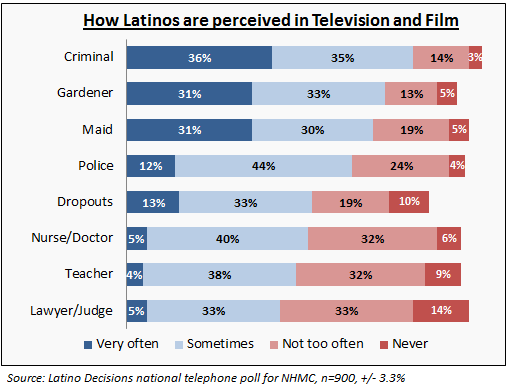As stated by the First Amendment of the United States, the People are promised the right to
- Respect of their establishment of religion
- Free practicing of their faith
- Freedom of speech
- Freedom the press
- Peaceably assemble
- And to petition the government
In the Speech Theories section of medlawlit, there are also eight values of free expression written out for observation and understanding. They are as follows:
- Marketplace of Ideas (AKA Discovery of Truth): first suggested by John Milton, saying that when truth and falsehood are allowed to freely fight, truth wins out and is stronger when fought over. Milton argued against a licensing/publishing license.
- Participation in Self-Government: suggested by Alexander Meiklejohn that citizens will not make wise and informed choices in elections if candidates and proponents of certain policies are restricted in their ability to communicate positions.
- Stable Change (AKA Safety Valve): suggested by Benedict Spinoza. A society in which angry and alienated citizens are allowed to speak their mind, or "vent," will be more stable, as people will be less likely to resort to violence. Ultimately, it is in the governments own self-interest to allow such venting.
- Individual Self-Fulfillment (AKA Self-Actualization): suggested by C. Edwin Baker. Free speech enable individuals to express themselves and thereby create their own identity, and possibly relationships with kindred spirts in the process. Freedom of speech becomes an aspect of human dignity, agency and autonomy.
- Check on Governmental Power (AKA Watchdog Role: elaborated by Vince Blasi. Freedom of the press enables citizens to learn about abuses of power, and then do something about the abuse at the ballot box if they feel so moved. Enables the People to be part of the check-and-balance system to restrains government power and abuse of power.
- Promote Tolerance: elaborated by Lee Bollinger. Argued that freedom of speech, especially through our practice of extending protection to speech that we find hateful or personally upsetting, teaches us to become more tolerant in other aspects of life.
- Promote Innovation: elaborated by Jack Balkin. Community in which free speech is valued and protected is likely to be a more energized, creative, interesting society as its citizens actively fulfill themselves in many diverse and interesting ways.
- Protect Dissent: elaborated by Steve Shiffrin. Our system is not supposed to be one of mob rule. The First Amendment protects minority views, no matter how unpopular. You have a strongly protected right to disagree with the government — and everyone else. In fact, it is your patriotic duty to criticize the government.
Note that the First Amendment also protects hate speech under its right to freedom of speech due to possible learning moments society may learn from, as well as create societal tolerance. The extent of the First Amendment has been reviewed in cases that reach even the Supreme Court.
Which of the Eight do I Value Most?
When I say I value two of the previously mentioned Values of Free Expression the most, it may sound like it's from naivety. I value the Check on Governmental Power (Watchdog Role) value and the Marketplace of Ideas (Discovery of Truth) value interchangeably. Sometimes, the former is valued more, whereas other times, it's the latter that is valued more. They feel the most important to me because they are the most personal to me.
I'm first-generation Mexican- and Serbian-American (flags seen above). I identify more as Latina/Hispanic (specifically Mexican, of course) due to more cultural exposure to various Latin cultures. My entire life, but especially during my high school years one (Trump administration and currently, Biden administration), I have been lucky to be white-passing. Mexicans are incorrectly generalized as the whole of the Latino/Hispanic population, especially those who are coming through the U.S.-Mexico border. All of these migrants must live at risk of the stereotypes projected by white American Hollywood: Mexicans are all drug dealers, dangerous, low-level workers or exotic. A significant of what and where American citizens benefit from are because of underpaid Latinos/Hispanics, predominately the men in the family.
Through the Watchdog Role, there can be protections for immigrants (not just Latino/Hispanic, but they are a dominant demographic in the immigration numbers). The Immigration and Customs Enforcement department, or ICE, has been known for and exposed in a Netflix documentary for its common inhumane treatment of detained immigrants, which are also majority Latino/Hispanic. In construction, an occupation these immigrants can more easily acquire, the government and law enforcement could step in to force the companies that are underpaying and/or not paying their immigrant workers at all to pay livable wages and protections as construction work is a risky job.
Through the Discovery of Truth, stereotypes of Latino/Hispanics can be disregarded, removed, and even not capitalized on as it has been. As seen in the table below (titled "How Latinos are perceived in Television and Film"), Latinos have more often been given the position or role of criminal, gardener, or maid by at least 2.5 times more than other roles. Latinos/Hispanics are limited in their capacity in the real world because employers are likely to view their possible Latino/Hispanic employees to be a negative addition to their business. Using the Discovery of Truth washes away a negative stereotype on Latino and encourages equal opportunity for Latino/Hispanics, and even immigrants, who often immigrate to the United States thinking that it's a Land of Dreams for all, not just whites and white-passing individuals.
Everything has influence. However, not everything has equal influence or importance.
/cdn.vox-cdn.com/uploads/chorus_image/image/69632702/cwelch_191031_3763_0001.0.jpg)




No comments:
Post a Comment